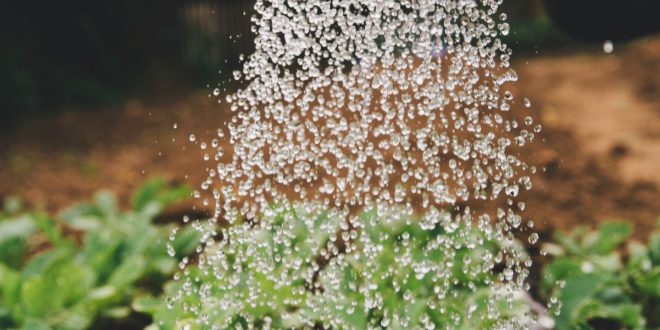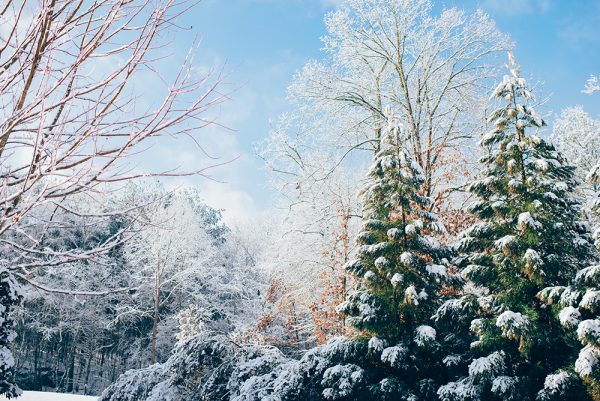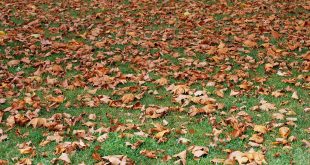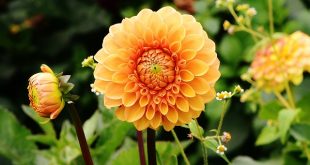Here in Britain, we’re very garden-proud and we tend to pour a lot of love, attention and exertion into looking after them – hence the lush green lawns, bright flower beds and smartly shaped hedges and bushes that fill towns and villages.
But, the love and look of the British garden may all, unfortunately, be set to undergo huge changes. A report by the Royal Horticultural Society found that our gardens will undergo transformations due to the need to adapt in order to suit the change in climate.
The report found that as the world warms and the weather becomes more extreme and unpredictable, soil, plants and lawns may be vulnerable to damage from downpours, snow and heatwaves. So, just how is the changing climate affecting British gardens?
Timing
With changes and adaptations in the weather, many bulbs and shrubs are having their natural blooming cycle knocked off course. Spring flowering shrubs and bulbs are starting to bloom well before Christmas and, whilst this means we get to enjoy a longer season of winter flowers, means that there will be less nectar around for the insects and birds to enjoy in the spring months, particularly pollinating insects.
Spring and summer time pruning of flowers may need to happen earlier, which is fine as long as the frost finishes earlier, too. Seeds may need to planted and sown earlier, but remember to plant in accordance with the change in daylight hours.
Water Resources
A lack of water is likely to cause a problem in the not so distant future. The soft and lush lawns of a traditional English garden are more likely to give way to new wilt-resistant styles or even artificial lawns.
A good way to conserve water levels, for the time being, is to invest in a water butt so that we can reduce our water wastage, particularly in the summer months. If you grow fruit and vegetables, the amount of water you use to water them in the warm weather will not only be costing you more, but the environment as well.
Dealing With Extreme Weather
Until recent years, we knew what to expect from the weather during different seasons and months. Now, however, it is harder to predict what will happen and when. Summers used to mean that we could plant and care for flowers in moisture loving, cool soils but, under extreme summer heat and droughts, it is likely that they will wilt and die. But, in real heat, figs, vines and fruit, in general, is likely to flourish and grow much better.
In order to protect your more delicate summer plants and flowers, it is worth investing in plants and bushes that provide shade during the harsh summer months. Geraniums, sweet peas and impatiens will all provide much-needed shade for bedding flowers and plants and are likely to flourish in the sun.
In the autumn and winter months, there is likely to be periods of time where the wind picks up, which is likely to cause issues in your garden. If you have trees and shrubs in your garden, then you may want to give thought to planting sheltering trees. Newer trees are best of being planted when small, from around 3-4ft instead of the towering 6-8ft, so that they are more stable in the long term.
Garden Furniture
A lot of us invest a lot of money in the best garden furniture for our outdoor spaces so that we can sit and admire all of our hard work when the weather allows. If your furniture is unable to be stored away during the winter months or protected during extreme heat, then you’ll be putting the furniture at increased risk of mould, damp or even splitting.
The best way to protect your furniture is to buy and invest in pieces which don’t weather easily. With the unpredictability of British weather, you might not have the time or means to be constantly covering or moving your furniture. Properly treating materials like wood and rattan will keep it lasting longer and look good all year round.
Help The Wildlife
Much like us, wildlife and nature don’t always know what the weather is going to do. As an important part of our garden health, it is vital that we do our bit to look after them, especially during periods of extreme weather. Birds play important roles in our garden’s eco-systems, so by installing bird boxes and providing food, you will be inviting them to become regular visitors.
Flowers not only look beautiful, but they bring colour and scents to your garden. They also provide food for many important insects. Try and grow as many different varieties as possible so that there is plenty of colours to last from spring to autumn and they welcome different insects and bugs.
SOURCES
https://www.theguardian.com/lifeandstyle/2019/jan/14/growing-pains-how-the-climate-crisis-is-changing-british-gardens
https://outdoorliving.desser.co.uk/
https://www.gardeners.com/how-to/seed-starting-faq/7882.html
https://www.rspb.org.uk/birds-and-wildlife/advice/gardening-for-wildlife/
https://www.rhs.org.uk/science/plant-health-in-gardens/protect-your-garden
 Gardeners Club The Gardeners Club is a free to join online club for everyone with an interest in gardening and gardens.
Gardeners Club The Gardeners Club is a free to join online club for everyone with an interest in gardening and gardens.






